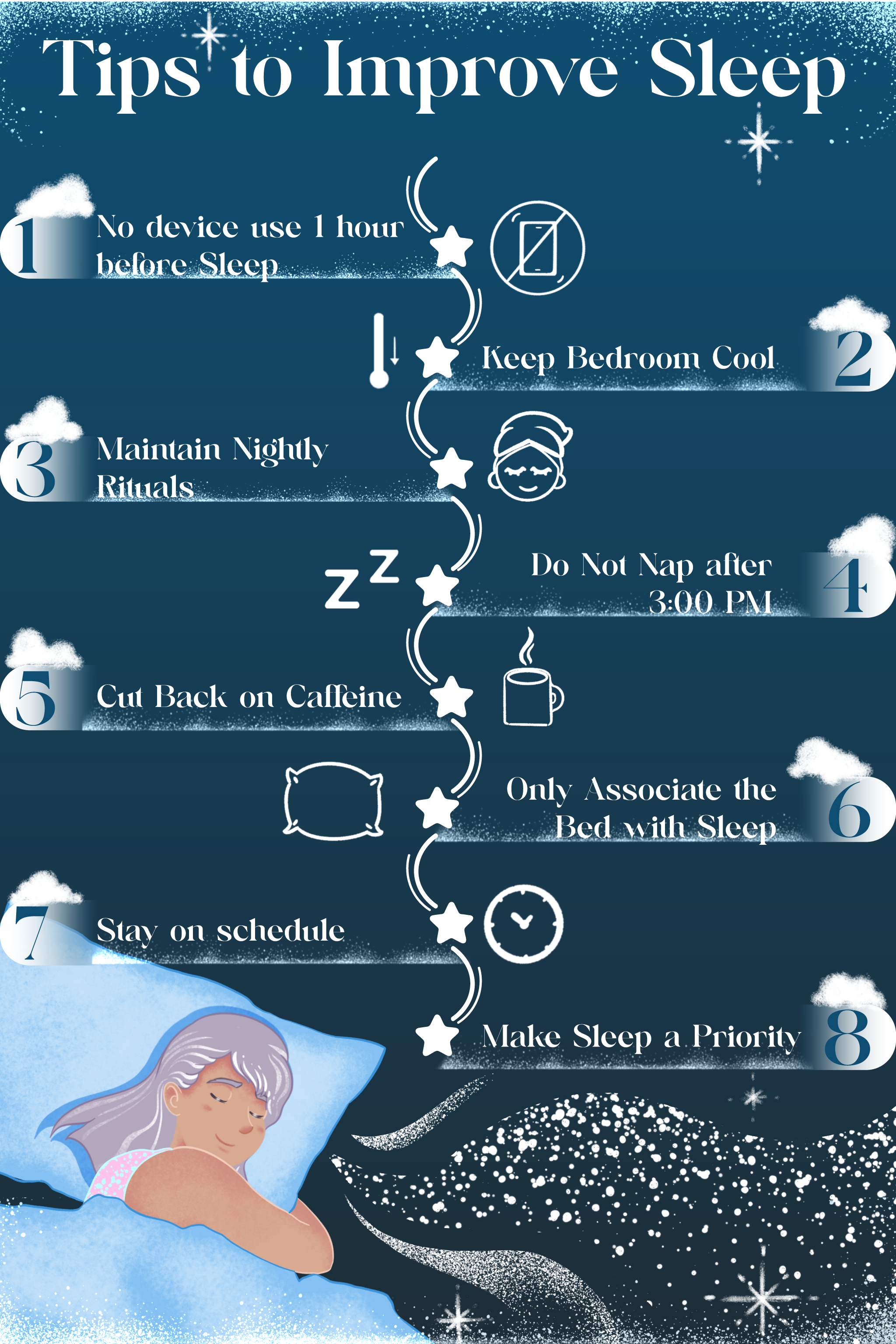37 Night Activity 4
Activity #N4: Sleep Superpowers
Scientists still have much to learn about sleep; however, sleep is important for brain and body health and overall wellbeing. Adults need between 7 and 9 hours nightly. My college students tell me they generally would like to get more sleep. A common complaint is their inability to get things done or balance all their priorities without staying on a regular sleep schedule.
Now that you have put some work into how to best use your time in activities 1 and 2, you can commit the necessary time to getting good-quality sleep. In our busy society many working people pride themselves on “needing little” sleep. This is a false belief and a preference created through our success driven culture. Less than 5% of the population have genetic variations allowing them to function on little sleep.
Priding yourself on getting little sleep is one thing, but can you imagine the effects of going for days without sleep? The video below describes what happened when a teenager attempted to go several days without sleep:
The effects of getting no sleep are so bad that research on sleep deprivation is considered dangerous and cannot be conducted on humans. This audio file from the Sleep Foundation describes what happens to people as they go from several hours to several days without sleep: How Long Can You Go Without Sleep?
Sort the activities below into things you do and things you do not do before sleep by dragging and dropping them into the correct box for your habits.
Here are some common tips to improve the quality and quantity of your sleep:
These tips involve activities that you can do or change to make sure your environment is ready for sleep. You may not be able to change everything about where you sleep (like if your room is much hotter than you would like). But you can remove a television or other screen from the bed area to put your focus on sleep. Try focusing on at least one thing you can change to help improve your future sleep.
